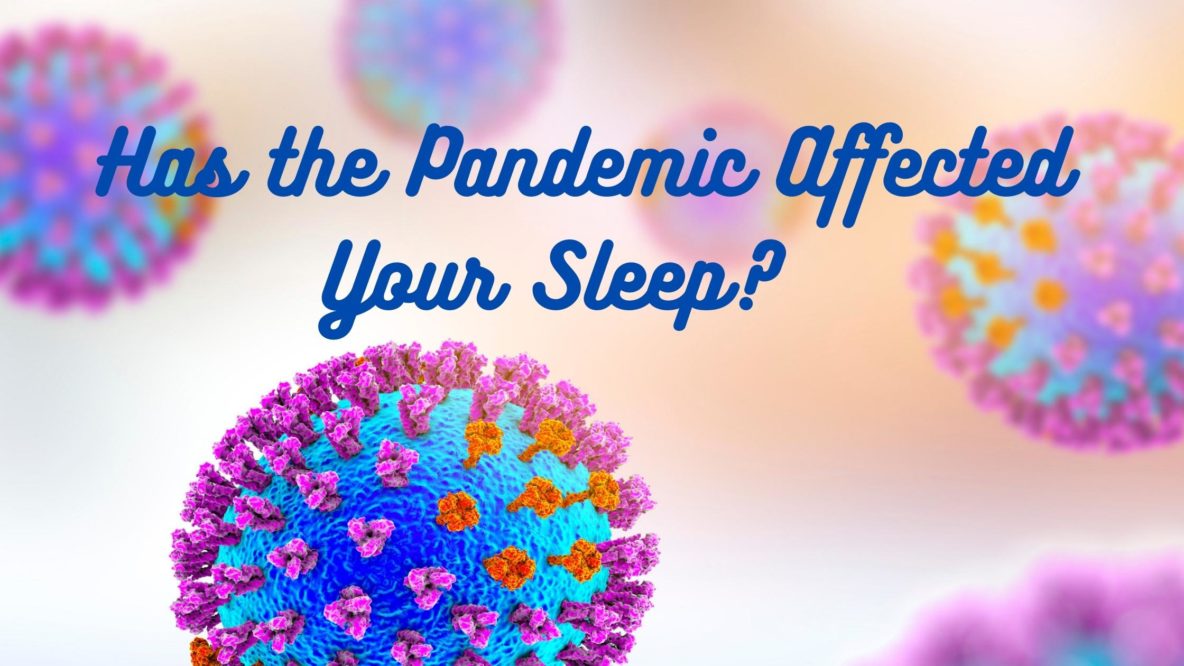Has the Pandemic Affected Your Sleep

- A Promising Paradigm Shift: New Research Challenges the CPAP-First Approach to OSA Treatment - September 5, 2023
- Understanding Sleep Meditation Techniques - July 30, 2021
- How Online Learning Has Affected Sleep for Students - July 13, 2021
The Covid-19 pandemic has affected everyone this last year. People have reported increased sleep disturbances in the past year, and more people are taking sleep aids like melatonin or prescription medications. Has the pandemic affected your sleep?
It’s Been a Stressful Year
Have you been sleeping poorly in the past year? One reason you might not be getting enough sleep is due to stress. Chronic stress is affecting more Americans than ever before. Many adults are working from home, children are home from school, and older Americans are being urged to stay home. All this stress has an impact on your overall health, as well as on your sleep.
Stress and Sleep
Stress activates your autonomic system, preparing your body to fight or flee. This is adaptable behavior if you meet a bear in the woods. But if you’re feeling that way while sitting at your desk working, it is a maladaptive behavior. Your heart rate and blood pressure will increase, your muscles tense for action, and your body releases cortisol and adrenaline. But then instead of running away from a threat, we keep sitting at our desk trying to work.
This stress builds up in the body, making it difficult to feel calm in the evening, or fall asleep at night. It also makes you more likely to wake up feeling stressed in the middle of the night, and have a hard time getting back to sleep.
If you’ve been sleeping poorly, you know that poor sleep makes you even more stressed! You have a harder time regulating your emotions after a night of poor sleep and you are more irritable the next day.
Inconsistent Schedules
Along with chronic stress, the pandemic may have changed your lifestyle or your schedule. With kids home from school, you’ve had to shift your working hours, stay up late working, or even change jobs. All these changes impact your routines and disrupt your sleep. You’re less likely to have a consistent wake up time or bedtime, and as a result you’ll sleep worse.
More Screen Time
The pandemic probably changed your entertainment habits. You haven’t gone out as much as before, and you spend more time at home streaming movies and TV shows. Not only that, but more of your social life has moved online, and you meet with coworkers, family, and friends online. Spending more time in front of a screen can affect your sleep. The blue light from screens can confuse your body into thinking it’s daytime, and this inhibits the production of melatonin. When you finally turn off your screen and climb under the covers, your body isn’t ready to sleep.
Learn to Recognize Exhaustion
Have you been struggling with increased exhaustion and fatigue? If you’ve been sleeping poorly for the last few months, it’s finally catching up to you. Some signs of exhaustion include:
- Difficulty thinking clearly
- Struggling to remember things
- Feeling like your eyes are heavy
- Snapping at your family
- Noticing mood swings
- Feeling groggy on unfocused
Get More Rest
The pandemic isn’t over yet and life isn’t back to normal. But there are a few things you can do to get more sleep. These tips can help you sleep 7 to 9 hours per night:
- Cut back on caffeine: If you rely on coffee to get through the day this will be a hard one. Caffeine stays in your system for a number of hours, so to get a good night’s sleep, you should avoid drinking caffeine after 2pm.
- Eat dinner early: It’s harder to sleep with a full stomach, so eat your last meal of the day a few hours before bed to give yourself time to digest.
- Turn off the screens: To promote better sleep, turn off your electronics at least 1 hour before getting into bed. This also helps you stop working or chatting too close to bedtime.
- Develop a relaxing bedtime routine: This could be as simple as reading for 15 minutes, having a hot bath, or listening to soothing music while you brush your teeth.
- Stick to a daytime schedule: It’s hard to call it a day when you didn’t make it through your to do list. Stick to a daytime schedule as much as you can, so you can relax and sleep in the evening.
For a good night’s sleep, contact us at Sound Sleep Medical! We provide sleep services for many different sleep disorders, including obstructive sleep apnea.
